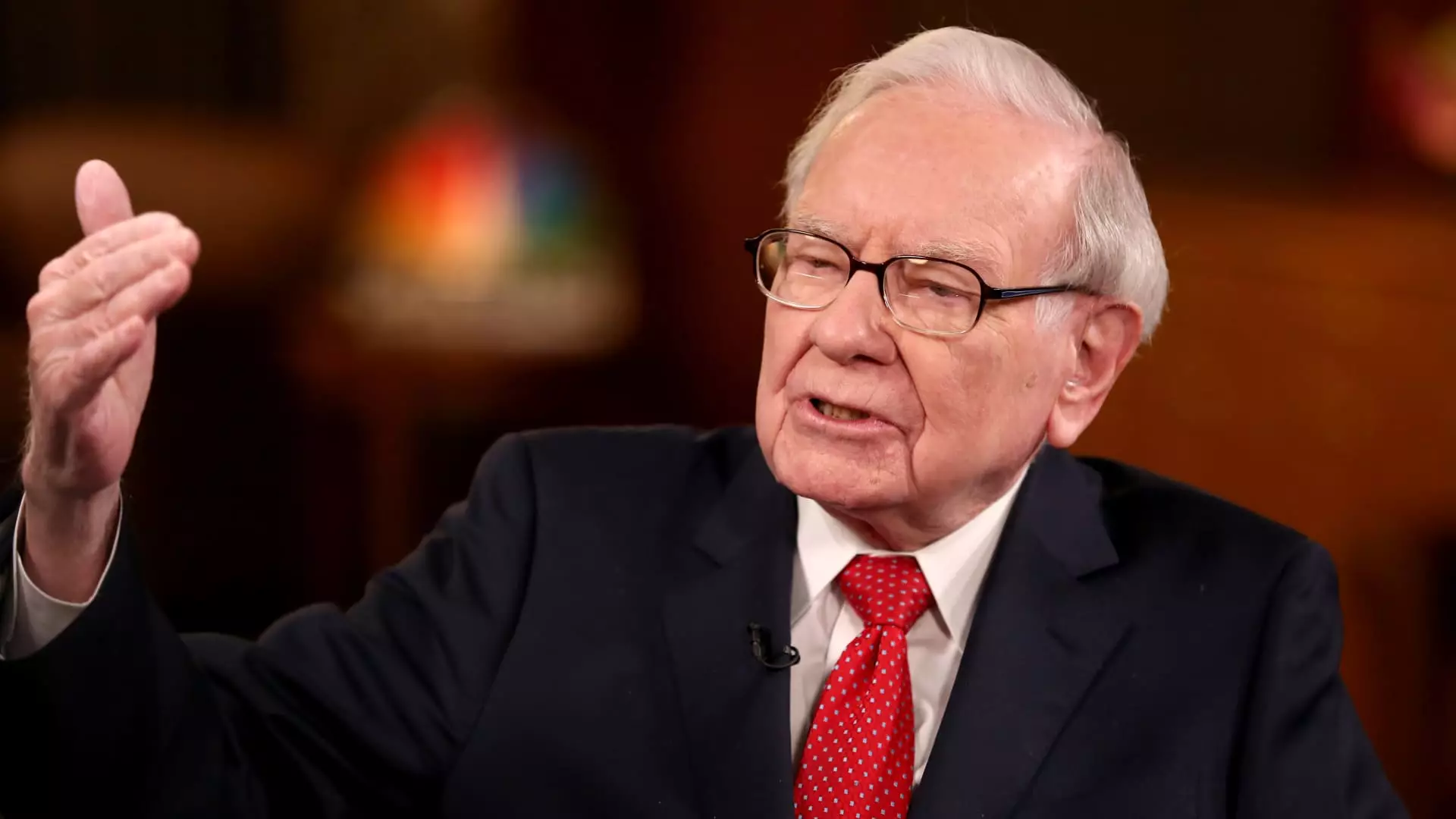In a bizarre twist of social media spectacle, President Donald Trump recently echoed a fan-made video on Truth Social, branding himself a market manipulator for economic strategy. Citing a supposed endorsement from renowned investor Warren Buffett, the video claimed that Trump’s deliberate decline of the stock market was a clever prelude to lower interest rates. However, Buffett wasted no time in debunking these unfounded assertions, with Berkshire Hathaway clearly stating that any claims attributing supportive statements to him were categorically false. This whole incident not only exposes the nonsensical narratives proliferating online but also underscores a significant issue: the cocktail of ignorance and desperation that occupies the political and economic discourse of our time.
The Flimsy Fabric of Internet Misinformation
Misinformation thrives in the fast-paced world of digital communication. When the video falsely claimed Buffett’s endorsement, it tapped into a larger problem where sensationalism often eclipses facts. The ease with which false narratives spread can have grave implications, particularly when influential figures like Trump wield the power to amplify them. Rather than offering concise policy insights, many in the public are often swept away by charisma over competence. Buffett’s attempt to clarify the issue reflects a desire for economic sanity, but it feels more like futile efforts to silence the cacophony of misguided narratives than a constructive dialogue about fiscal policy.
Examining the Economic Narrative
The video indicates a troubling ideological trend—an attempt to frame market crashes as strategic moves for long-term benefits. This perspective not only simplifies complex economic dynamics but also undermines the gravity of market stability. True economic leadership recognizes that manipulating market factors usually results in devastating consequences for the average citizen, especially those who rely on stable employment and sustainable mortgages. By positing that a market crash could somehow be beneficial, Trump and his supporters expose a sharp disconnect from economic realities—a viewpoint that could exacerbate economic downturns instead of alleviating them.
Buffett’s Historical Perspective
To fully appreciate Buffett’s refusal to endorse Trump’s claims, one must recognize his historical skepticism regarding protectionist policies. Previously labeling tariffs as “an act of war,” Buffett’s long-standing criticism towards such economic strategies serves as a correction to Trump’s reckless proclamations. The billionaire investor understands that a globally interconnected economy benefits the majority, whereas aggressive trade conflicts lead to detrimental effects, not only on a national scale but worldwide. This ideology contrasts starkly with the insular nationalistic rhetoric that often dominates political speeches today.
The Consequence of Indifference towards Economic Literacy
The mainstream public’s lack of economic literacy plays directly into the hands of political opportunists. This is not merely a situation of misguided investments or failing markets but one that could lead to generational consequences. If citizens engage with economic issues through a lens tinted by misinformation and populism, sustainability turns into a hollow ideal. Ignorance leads to blind allegiance, and before long, harmful policies can solidify and become entrenched. It is imperative to understand that Trump’s tactics might appeal to emotions, but they dangerously undermine the foundational principles of sound economics.
Buffett’s Call for Accountability
Buffett’s call to knock down misinformation illustrates a vital responsibility for influential figures—both politicians and business leaders alike. Misinformation can morph into confirmed beliefs with alarming speed, thereby complicating meaningful discussions about fiscal responsibility. It is here where Buffett’s message becomes especially crucial; the pursuit of truth and transparency in economic dialogue is essential for fostering accountability and trust amongst the public. Hence, it is not only about combatting misrepresentation but also about instilling a culture of dialogue that prioritizes facts over dogma.
Navigating a Complex Economic Landscape
As we face a turbulent economy, one can only wonder: how long will we allow sensationalism to guide our understanding of fiscal issues? The events surrounding Trump’s recent statements on social media serve as a reminder of the tricky path ahead. We must envisage an economic landscape that champions both popular sentiment and factual accuracy. While Buffett might be strategically sidestepping this political fray, his clarion call serves as an invitation for us all to engage thoughtfully and skeptically with the economic narratives shaping our world.
This moment is not just about Warren Buffett or Donald Trump; it’s about what kind of economic future we want to build and who we want to bring along for the journey.

